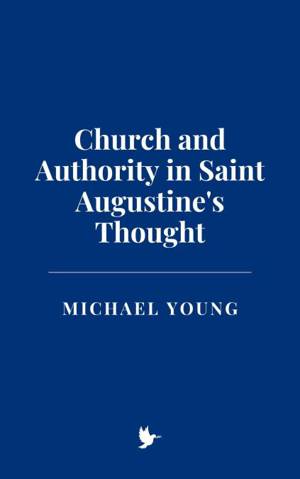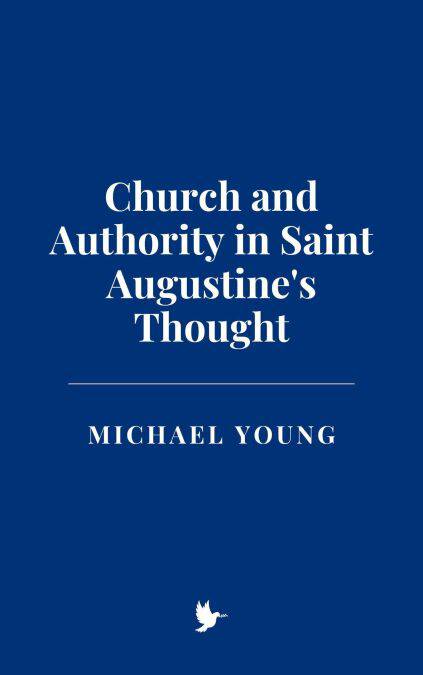
- Afhalen na 1 uur in een winkel met voorraad
- Gratis thuislevering in België vanaf € 30
- Ruim aanbod met 7 miljoen producten
- Afhalen na 1 uur in een winkel met voorraad
- Gratis thuislevering in België vanaf € 30
- Ruim aanbod met 7 miljoen producten
Omschrijving
Saint Augustine of Hippo (354–430 AD), one of the most influential figures in the history of Western Christianity, presents a theological framework that remains foundational to Christian thought, particularly in matters of Church and authority. His vast intellectual legacy includes contributions to biblical exegesis, philosophy, ecclesiology, and ethics. As bishop of Hippo Regius, Augustine was at the heart of the Church's administration during a period of profound transformation, as the Roman Empire slowly dissolved and Christianity became its state religion. This intersection of theological reflection and historical events allowed Augustine to engage deeply with issues of ecclesial authority, the role of the Church in the world, and the relationship between spiritual and temporal power. His writings, particularly The City of God, The Confessions, and his letters and sermons, provide critical insight into his understanding of the Church and its authority in the Christian life.
Augustine's ecclesiology was shaped not only by his direct involvement in the North African Church but also by the broader theological and political contexts of his time. His life spanned an era marked by religious conflict, including the Donatist controversy, the rise of Pelagianism, and the eventual triumph of Christianity over the pagan Roman state. Augustine's ideas evolved in dialogue with these pressing theological debates, yet his central concern remained constant: the relationship between the Christian community and the divine authority that structures it. For Augustine, the Church was not merely a social institution or a moral community but the mystical body of Christ, an earthly manifestation of God's eternal plan for salvation. His thoughts on Church and authority would thus become central to the development of Christian doctrine, particularly in terms of the power and role of bishops, the relationship between the Church and the State, and the means by which the Church maintains unity and orthodoxy in the face of internal and external challenges.
Specificaties
Betrokkenen
- Auteur(s):
- Uitgeverij:
Inhoud
- Taal:
- Engels
Eigenschappen
- Productcode (EAN):
- 9798230890027
- Verschijningsdatum:
- 10/02/2025
- Uitvoering:
- E-book
- Formaat:
- ePub

Alleen bij Standaard Boekhandel
Beoordelingen
We publiceren alleen reviews die voldoen aan de voorwaarden voor reviews. Bekijk onze voorwaarden voor reviews.









